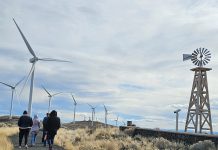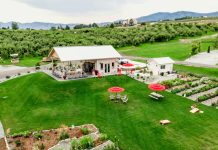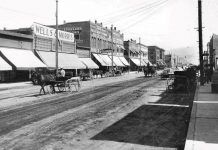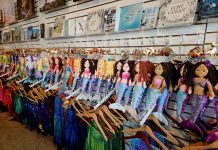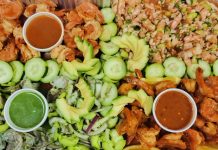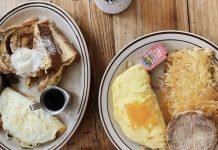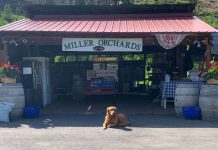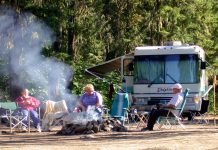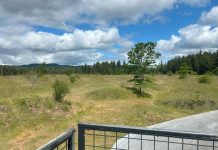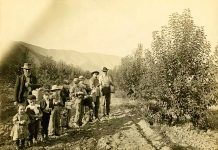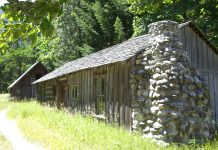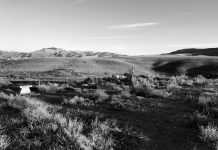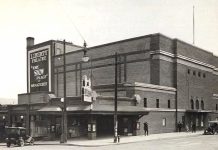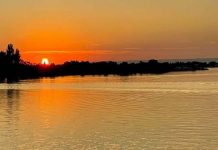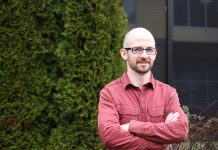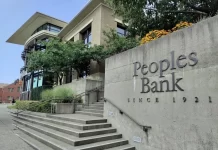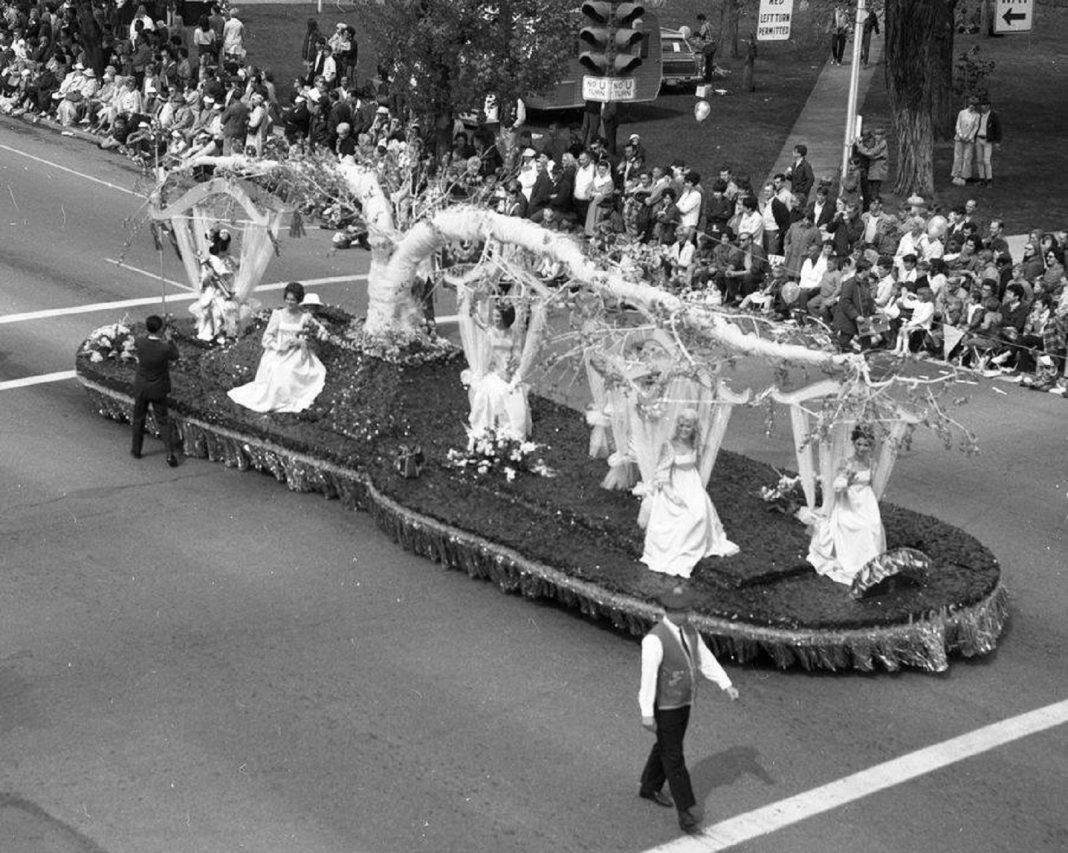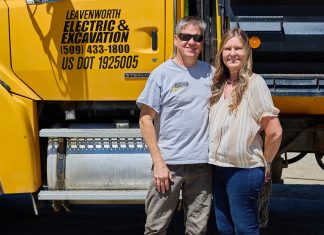From the Wenatchee AppleSox to the over 14,000 acres of dedicated apple orchards, apples are a core component of Wenatchee’s history. Since one of the region’s first pioneer settlers, Phillip Miller, planted apple trees here in 1872, the city has been ripe with apples and has bloomed into what is now known as the “Apple Capital of the World.”
With apples forming the foundation of Wenatchee’s identity, it was only natural that a vibrant celebration would emerge to honor this deep-rooted heritage. This celebration takes the form of the famous annual Apple Blossom Festival, a cherished tradition rich with history and blossoming alongside the city itself.

A Love Grows: A Fateful Meeting Ends with the Inception of the Apple Blossom Festival
The year was 1905, and Wenatchee had just established itself as a prominent apple-growing area. Still, sadly, local agents weren’t giving farmers a lot of money for their crops, resulting in many of them not making enough money to keep their orchards up and running. One such farmer being affected was Ernst Wagner, who, in 1907, thought surely there must be another, better way to do business.
After reading about fruit exports to the Pacific and having 3,000 cases left over from the year’s crop that he refused to sell for a meager 20 cents a case, he shipped his apples to Seattle, where he contacted a shipping agent who allowed him to send the apples to Australia and be paid out of the proceeds.
He and his whole family climbed aboard and set sail for Australia, an entire shipment of apples in tow. Upon arriving in Australia, the smart thinker quickly learned that the Australians had recently had a bad run with Californian apples being very poorly packaged and damaged upon arrival. Recognizing that there could be potential drawbacks of branding his apples as simply “American,” Ernst cleverly opted to market his apples as hailing from Washington, or specifically Wenatchee, capitalizing on their unique regional identity. This strategic move proved highly successful, fetching him a remarkable $10,000.
With his earnings, Ernst took a holiday, but it was all work and no play as they were of the business variety. He spent time in Australia, Fiji, and New Zealand before returning with signed contracts for 27,000 cases of apples (rumor has it he managed to ship out a whopping 35,000 cases the following year, surpassing the contractual amount).
By 1912, Ernst had done so well that he gave his agents overseas brand-new model T-Fords. While returning home from delivering one of the cars to New Zealand, he met a lovely woman named Sue Callahan on board the ship. The rest, as they say, is history.

Mr. and Mrs. Wagner Hold the Very First Blossom Day in Wenatchee
Sue was born in New Zealand and emigrated to the United States in 1902. After meeting Ernst, she found herself moving to Wenatchee in 1914. Sue and her four sisters had been brought up running country hotels, so she was very well-versed at running a business by the time she reached her early teens. It was this prowess that the new wife made significant contributions not just to her husband’s budding business but also to women and their contributions to the growth of the country and industry.
Inspired by the celebrations of her native homeland, it was Sue’s idea to host what would become Wenatchee’s first Apple Blossom Festival, then known as “Blossom Days.” Together with The Ladies’ Musical Club, she produced the first festival in May of 1920. It was the perfect year to start the budding festival, as it coincided with the first year that American women got to vote.

The one-day event at Memorial Park featured songs, speeches, maypoles, and baseball. Drawing a large crowd to the area the first year assured the festival’s continuation in subsequent years, deemed an enormous success. The following year, in 1921, the Commercial Club, forerunner of the Wenatchee Valley Chamber of Commerce, took over sponsorship of the fruitful celebration.
As for Sue, she went to be hands-on with the festival for the next 25 years, celebrating apples and the women of Wenatchee alongside her husband, Ernst. Eventually, Ernst died in 1948 and Sue in 1953, both leaving behind a legacy of fostering community, championing women’s contributions, and forever linking Wenatchee to the sweet taste of success as founders of this now cherished annual tradition.

The Wenatchee Apple Blossom Festival Continues to Bloom as its Roots Grow
Over a hundred years later, and today, Wenatchee’s Apple Blossom Festival is still deeply rooted within the community. It is the second-oldest festival in Washington and the oldest apple blossom festival in the United States. In all those years, the festival has been held continuously except for a few occasions. One was in 1932 during the Great Depression, and most unfortunately, another was the year that would have been its centennial anniversary in 2020, which coincided with the COVID-19 pandemic.

When the festival started again after World War II ended, having gone through a brief hiatus between 1942 and 1945, it was renamed the Washington State Apple Blossom Festival to more accurately reflect the importance of the apple industry in North Central Washington. Later, in 1967, Wenatchee established a sister city relationship with Aomori Apple Blossom Festival in Japan, with both events taking place in late April and early May of each year.
What started as a one-day festival has now transformed into an 11-day affair that includes a carnival, golf tournament, food fair, multiple parades, an arts and crafts fair, on-stage entertainment at Memorial Park, and other amusements and fun-filled activities. Each year, approximately 5,500 people participate in its Grand Parade, and the calendar of festivities attracts over 100,000 visitors to the region.

Beginning in 2019, the Spirit of Ernst and Susan Wagner Award was added to the festival’s extraordinary resume having since been presented each year. It was established to honor individuals, businesses, non-profits or service clubs that have given back to the community to make it a better place to live. It’s a fitting dedication to two inspirational individuals who had a helping hand in cultivating the blooming legacy of the city’s world-famous Apple Blossom Festival.
Now, how about them apples?




